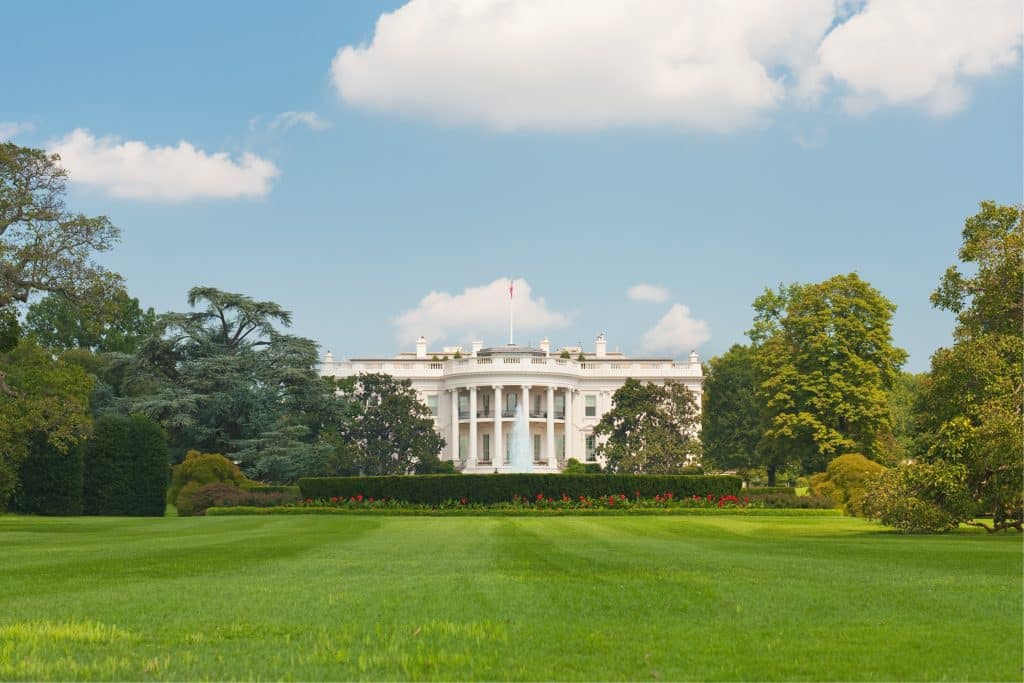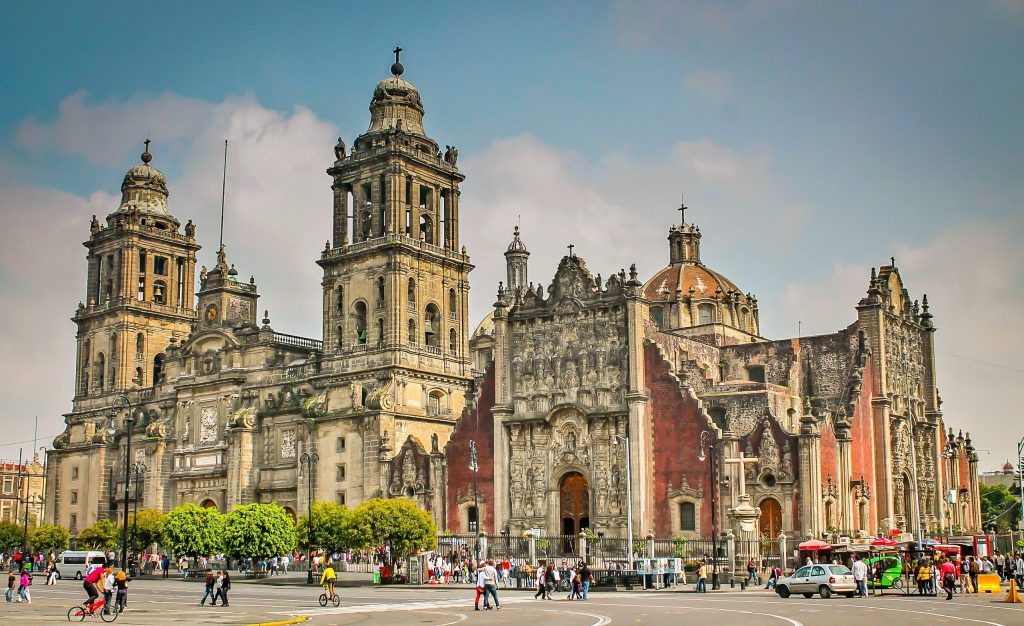Summary: Where is Kratom Banned?
Legality is on a case-to-case basis. Yes, kratom is legal in many places across the globe. However, some places believe the potential risks are a reason to ban it.
We’ll look at kratom laws around the world and what the current research shows regarding its safety.
USA: Where is Kratom Banned?
International: Where is Kratom Banned?
| Region | Status | Countries That Have Banned Kratom |
| Asia | Banned | Japan, Russia, Turkey, Vietnam |
| Australia & New Zealand | Banned | Australia, New Zealand |
| Europe | Banned | Bulgaria, Denmark, Finland, France, Norway, Poland, Sweden, United Kingdom |
| LATAM | Banned | Argentina |
| North America | Banned | None |

Why is Kratom Banned In Some Countries? Is Kratom Safe?
Kratom, otherwise known as Mitragyna speciosa, is a psychoactive herb made from the leaves of a tree found growing in various areas of Southeast Asia — such as Indonesia, Malaysia, Papua New Guinea, and Thailand.
People there have been using kratom as traditional medicine for centuries. The fresh leaves are typically chewed or dried and turned into a powder. This makes it easy to make into a tea or add to capsules.
Even though there’s a long history of its use, we’ve only recently started researching its alkaloids. We do know that kratom is an atypical opioid — it acts on multiple systems, including opioid receptors — so people assume it’s just as addictive and, therefore, shouldn’t be easily accessible.
It sparked enough concern that the World Health Organization (WHO) reviewed it in 2021 — users everywhere feared the organization would suggest it be scheduled as a controlled substance. However, it did not. After looking at the research, the WHO determined that kratom was not a concern, but it would continue to monitor it.
Despite all we know about kratom so far, some government officials still have a narrow view of kratom due to misinformation and fear.
Opioid use disorder is a real problem globally and remains at epidemic levels in the United States and worldwide. Sixteen million individuals globally and around three million U.S. citizens currently abuse opioids in the form of heroin, synthetic opioids such as fentanyl, and prescription pain relievers.
Some regulators believe banning the plant will help reduce opioid addiction rates — but others prefer to keep the plant legal as a way to deter people from using them.
Research strongly suggests that kratom can be addictive but is significantly less problematic than prescription painkillers or street-level narcotics. It’s unlikely to cause an overdose and is usually only dangerous when used improperly.
Kratom Laws In the United States
Kratom seems to be surrounded by controversy. Kratom is unregulated in the United States. This means the federal government does not have laws on how it’s manufactured, sold, or used.
This gives users great freedom, but it has quite a few downsides. If you’re a consumer, these problems can be mostly mitigated with diligence.
Most states haven’t implemented laws to regulate or ban kratom, making it unregulated almost everywhere.
However, a growing number of states are considering regulatory laws that would help protect users. The American Kratom Association (AKA) helps lobby for the Kratom Consumer Protection Act, or KCPA, which protects the legality of kratom while setting requirements for possession and use, such as a minimum age — similar to how cigarettes and alcohol are controlled.
Some states have passed the KCPA or a version of it, and some have banned the herb altogether. Check out our list below of all fifty states’ specific laws surrounding kratom.
Kratom Laws by State:
| State | Legal Status | Details |
| Alabama | Banned | The active alkaloids in kratom, mitragynine & 7-hydroxymitragynine are banned. |
| Alaska | Unregulated | There are no regulations on kratom. |
| Arizona | Regulated | Kratom is legal and regulated under the Kratom Consumer Protection Act (KCPA). |
| Arkansas | Banned | All kratom products are banned. |
| California | Partially Regulated | Kratom is banned in San Diego but legal elsewhere in the state. |
| Colorado | Partially Regulated | Kratom is only banned in the cities of Parker & Monument, and restricted in Denver (must include label stating “not for human consumption”) |
| Connecticut | Unregulated | There are no regulations on kratom. |
| Delaware | Unregulated | There are no regulations on kratom. |
| Florida | Unregulated | There are no regulations on kratom. |
| Georgia | Regulated | Kratom is legal and regulated under the Kratom Consumer Protection Act (KCPA). |
| Hawaii | Unregulated | There are no regulations on kratom. |
| Idaho | Unregulated | There are no regulations on kratom. |
| Illinois | Partially Regulated | Kratom is banned only in Jerseyville, Alton, and Edwardsville. |
| Indiana | Banned | All kratom products are banned. |
| Iowa | Unregulated | There are no regulations on kratom. |
| Kansas | Unregulated | There are no regulations on kratom. |
| Kentucky | Unregulated | There are no regulations on kratom. |
| Louisiana | Partially Regulated | Kratom is legal for those over 21. It is banned in Ascension, Rapides, and Grant Parishes. |
| Maine | Unregulated | There are no regulations on kratom. |
| Maryland | Unregulated | There are no regulations on kratom. |
| Massachusetts | Unregulated | There are no regulations on kratom. |
| Michigan | Unregulated | There are no regulations on kratom. |
| Minnesota | Unregulated | There are no regulations on kratom. |
| Mississippi | Unregulated | There are no regulations on kratom. |
| Missouri | Unregulated | There are no regulations on kratom. |
| Montana | Unregulated | There are no regulations on kratom. |
| Nebraska | Unregulated | There are no regulations on kratom. |
| Nevada | Regulated | Kratom is legal and regulated under the Kratom Consumer Protection Act (KCPA). |
| New Hampshire | Partially Regulated | Kratom is legal for adults, but use by a minor is prohibited. |
| New Jersey | Unregulated | There are no regulations on kratom. |
| New Mexico | Unregulated | There are no regulations on kratom. |
| New York | Unregulated | There are no regulations on kratom. |
| North Carolina | Unregulated | Kratom is legal for adults, but use by a minor is prohibited. |
| North Dakota | Unregulated | There are no regulations on kratom. |
| Ohio | Partially Regulated | Only kratom leaf powder is legal. All packages must list “not for human consumption.” |
| Oklahoma | Regulated | Kratom is regulated by the Kratom Consumer Protection Act (KCPA). |
| Oregon | Unregulated | There are no regulations on kratom. |
| Pennsylvania | Unregulated | There are no regulations on kratom. |
| Rhode Island | Banned | Mitragynine & 7-hydroxymitragynine are banned. |
| South Carolina | Unregulated | Kratom is legal for adults, but use by a minor is prohibited. |
| South Dakota | Unregulated | There are no regulations on kratom. |
| Tennessee | Unregulated | Kratom is legal for adults over 21. |
| Texas | Regulated | Kratom is regulated and available to adults over 18. |
| Utah | Regulated | Kratom is legal and regulated under the Kratom Consumer Protection Act (KCPA). |
| Vermont | Banned | Kratom’s active compounds mitragynine & 7-hydroxymitragynine are banned. |
| Virginia | Regulated | Kratom is legal and regulated under the Virginia Consumer Protection Act. |
| Washington | Unregulated | There are no regulations on kratom. |
| West Virginia | Regulated | Kratom is legal and regulated under the Industrial Hemp Development Act. |
| Wisconsin | Banned | All kratom products are banned. |
| Wyoming | Unregulated | There are no regulations on kratom. |

Alabama
(BANNED)
Kratom is a banned substance in the state of Alabama. Kratom is a Schedule I controlled substance, and therefore it is illegal to sell, possess, manufacture, or distribute.
The Alabama Senate decided to add the two most abundant alkaloids in kratom — mitragynine and 7-hydroxymitragynine — to the list of controlled substances in 2016 by passing SB 226.
According to the bill, both alkaloids fall under “synthetic substances.” This is an inaccurate portrayal of kratom, and the main reason it remains banned is that the bill has not yet been contested.
There was a petition that urged authorities to vote against the ban in 2016 and another in 2017. Neither of them made any progress.
Alaska
(LEGAL)
There are currently no federal or local laws for kratom in Alaska. As of today, kratom is 100% legal in the state of Alaska. This means that individuals are welcome to buy, sell, and use kratom products.
Some states will make it legal, but there are local restrictions placed within certain towns and cities. This is not the case with the state of Alaska. You are permitted to buy, sell, and use kratom in all areas of the state without restrictions.
However, some stores may require the individual to be 18 years of age or older to purchase kratom and kratom products. Most local vendors sell kratom in smoke shops.
Arizona
(LEGAL — KCPA)
Kratom is currently legal in the state of Arizona. In 2014, the state intended to ban the herb. However, it was left out of the bill. In April 2019, Arizona passed the Kratom Consumer Protection Act or KCPA. This regulates kratom in the state.
The Arizona senate reviewed a bill that intended to add synthetic substances to the controlled substances act in 2014, and mitragynine and 7-hydroxymitragynine were among the substances added to the list.
Since pure kratom is a natural plant product, this would have been an inaccurate representation. Kratom advocates and supporters petitioned against it but did not gather many votes.
In the end, authorities removed kratom and its alkaloids before passing the bill.
Arkansas
(BANNED)
Kratom is currently illegal throughout the state of Arkansas, which means you are not permitted to buy or possess it if you live in this state or plan on visiting.
In 2017, medical examiners brought up claims that kratom had been linked to three deaths in the state of Arkansas. The physician placed kratom as having alkaloids derived from opium. This suggestion led the Food and Drug Administration to issue a nationwide warning, and this was the turning point for Arkansas regarding the herb.

California
(LEGAL)
California is known for its laid-back views toward botanical medicine. It was the first state to legalize medical marijuana in the 1990s; recreational marijuana is also legal today. So what is their take on kratom?
Kratom is legal everywhere in the state of California except for the cities of San Diego and Oceanside. Both cities banned the sale, use, and possession of the herb in 2016. They reasoned that they did not believe there was enough evidence to prove that it was safe.
City officials decided to classify it with synthetic drugs such as bath salts, spices, etc. This is the usual classification that states or cities will go with when banning kratom.
San Diego’s municipal code states kratom is a Schedule 1 drug. Possession will land you a misdemeanor, and possession with intent to sell is a felony.
According to Oceanside’s code of ordinances, kratom is a novel psychoactive substance, and possession is a misdemeanor. If convicted, the penalty is a fine of up to $1000 or up to six months in jail.
Colorado
(LEGAL)
Kratom is currently legal in Colorado. However, it is not legal in the towns of Parker and Monument. It’s also illegal to sell kratom for human consumption in Denver.
In 2017, the Denver Department of Public Health and Environment decided to restrict the distribution and possession of kratom. It is legal to sell and possess as long as packages say the product is not for human consumption and there’s no advice on its use.
Colorado attempted to regulate kratom in 2023 with SB 23-147, but the bill was sent to the Senate Committee on Finance, where it was postponed indefinitely and died on February 28, 2023.
Connecticut
(LEGAL)
Kratom is currently legal in the state of Connecticut. This means that there are zero restrictions on the manufacturing, distribution, sale, purchase, or use of the herb.
In January 2023, HB 5134 was proposed, which would require the Department of Consumer Protection to perfom a study of kratom and its effects and submit a report. It was referred to the Joint Committee on General Law.
A bill was introduced in 2014 that included kratom and its alkaloids on a list of substances that were to be banned in Connecticut. However, public and other disapproval led to the herb being removed from the list.
The bill did pass, but kratom was left out and is still legal in the state.

Delaware
(LEGAL)
Currently, kratom enjoys full legal status across the state of Delaware. Possession, sale, and use of the herb are legal.
Since the legislative branch of the state has passed no laws regarding the use of kratom, the executive branches of the state, three counties, and various municipalities also take no steps to restrict kratom, as there are no laws to enforce.
Like other legal states, you can likely find kratom for sale in smoke shops.
Florida
(LEGAL)
Except for Sarasota County, kratom is currently legal to consume or purchase in the state of Florida as long as you’re over 21.
The state passed the Florida Kratom Consumer Protection Act, and became effective as of July 1, 2023. This makes it illegal to sell kratom to anyone under 21.
Past legislation determining whether kratom should be re-classified as a controlled substance did not make much traction in 2017.
Georgia
(LEGAL — KCPA)
Kratom is legal in the state of Georgia and regulated by the Kratom Consumer Protection Act. Under this act, kratom is available for anyone of 18 years of age, and the products must display a label stating details such as ingredients, alkaloid content, and disclaimers.
Georgia’s HB 181 would have put mitragynine and 7-hydroxymitragyine on the list of Schedule I substances. However, the bill, fortunately, died in March 2023.
Much of the fear in Georgia comes from misinformation and its checkered history there. A Georgia medical examiner issued a statement that kratom was linked to 11 deaths in the state. This followed an official FDA warning about kratom a few days beforehand.
According to autopsy results on the 11 deaths that were supposedly connected to kratom use, 9 of the individuals had other substances in their blood aside from the herb. The other two have very limited data available.
However, the World Health Organization has stated kratom is not a public health concern, and ongoing research backs this.
Hawaii
(LEGAL)
Kratom is currently legal in the state of Hawaii. However, there was intent to make the two primary alkaloids found in kratom Schedule V drugs. In January of 2020, seven candidates sponsored a bill that intended to ban kratom and make the herb a Schedule V drug.
The writers of this bill referred to kratom as a “detrimental drug.” They reasoned that the DEA considered the herb a drug of concern. The FDA states that there is no evidence that kratom possesses any beneficial properties. According to NIDA, abuse of kratom is on the rise.
They suggested listing kratom alkaloids as hallucinogenic drugs. Fortunately, the bill was not a success and died in committee.

Idaho
(LEGAL)
Kratom is currently legal and unregulated in Idaho.
Idaho was reviewing HB 567 (the Kratom Truth In Labeling Act), a law that would have regulated the herb in 2020, making it mandatory for manufacturers and retailers to meet certain criteria, but it did not pass.
Illinois
(LEGAL)
Kratom is legal in the state of Illinois for individuals over the age of 18. However, kratom is currently banned in Jerseyville, Alton, and Edwardsville.
Local authorities passed a bill in 2014 that banned kratom for minors; thus, only 18+ can buy kratom.
In 2017, Jerseyville made a move to ban kratom within city limits. A year later, Alton followed suit in 2018.
In 2018, a state representative filed a bill that suggested amending the Illinois controlled substances act. This bill had the goal to expand restrictions imposed on minors to adults, as well. This would have resulted in a statewide ban on the herb.
About a year later, in January 2019, the bill died. Therefore, kratom remains legal for individuals 18 years of age and older, except for residents of Jerseyville and Alton. Edwardsville was added to the list of cities to ban kratom in April 2020.
Indiana
(BANNED)
Unfortunately, kratom is illegal in the state of Indiana. The Indiana Senate banned the herb in 2014, and it is classified as a Schedule I controlled substance.
The most recent attempt to reverse this was in 2023 with Bill HB 1500. It passed the House but ultimately died. The bill’s sponsors plan to continue trying.
Indiana is one of the few states in America that chose to ban kratom. In 2014 the Indiana Senate amended the law and included the two primary alkaloids found in kratom, 7-hydroxymitragynine, and mitragynine, as prohibited drugs.
Like other cities or states to ban kratom, they suggested classifying the alkaloids as synthetic substances. Both alkaloids were labeled as synthetic cannabinoids that mimic the effects of marijuana and cocaine. However, this is clear misinformation as kratom is neither a cannabinoid or synthetic.
Iowa
(LEGAL)
Kratom is currently legal in the state of Iowa. The Iowa Senate received a bill in 2014 that suggested banning all sales and possession of kratom. Due to activists and supporters starting a petition, the bill did not end up passing.
Iowa Legislators received a bill in early 2014 that proposed to criminalize the herb. The bill states that it was a hallucinogenic substance with a high potential for being abused and that kratom had no proven medical benefits.
The petition pointed out that kratom was a natural herb from the Rubiaceae or coffee family and indicated that it has as much potential for abuse as coffee. Later down the line, in 2017, scientists released an 8-factor analysis of kratom that proved the information to be true. This indicated that the bill planned on outlawing kratom on false claims.
The bill did not end up passing, and kratom remains legal in the state of Iowa.

Kansas
(LEGAL)
Kratom is currently legal in Kansas.
Bill HB 2188 was introduced in February 2023 in an attempt to regulate kratom state-wide.
This is an improvement considering a bill to include kratom in the controlled substance list was proposed in 2018. Due to action from activists and supporters, authorities removed kratom from it before passing the bill. This year, Kansas is reviewing the Kratom Consumer Protection Act.
The Kansas Senate received a bill that proposed revising the substance in Schedules I, II, and III. Initially, kratom was one of them.
The American Kratom Association and the Botanical Education Alliance urged kratom advocates to email senate members with a plea to keep kratom legal in the state. Some senate members opposed keeping the herb legal and stated that kratom supporters sounded so desperate that it resembled being addicted.
Fortunately, they removed kratom from the list of substances before the bill was passed. It is legal to buy, sell, possess, and use in the state of Kansas.
Kentucky
(LEGAL)
In the state of Kentucky, kratom is legal. However, in 2016, the government intended to ban the herb, but the bill failed. An effort to regulate kratom in 2021 also failed. Kratom is legal but unregulated in the state.
A bill to define kratom and introduce it in the Kentucky Controlled Substances Act was introduced; the bill intended to include kratom and its alkaloids among Schedule I substances and classify it as a synthetic opioid. This bill went on to fail.
Louisiana
(LEGAL)
Kratom is legal for those over 21 in most of Louisiana. In 2022, Ascension, Rapides, and Grant Parishes banned kratom.
For now, kratom is loosely regulated as of June 26, 2023. Bill SB94 puts mitragynine on the Uniform Controlled Dangerous Substances Act and will be scheduled in the state if the DEA ever schedules it federally.
The bill also states any product with mitragynine and/or 7-hydroxymitragynine is considered kratom and illegal to sell to anyone under 21.
There have been several previous attempts to ban it across the state, but none of them succeeded.
Authorities received a bill in 2014 that proposed adding it to the controlled substance list. Any material, mixture, or compound that contained the two primary alkaloids in kratom would have been made illegal. The bill eventually died.
The following year, in 2015, the Louisiana Senate received the same bill. This time it ended up passing, but legislators amended it and chose to exclude the herb’s compounds from it.
In 2020, a bill to regulate the herb also failed. It’s hard to know what will happen next with the kratom laws in Louisiana, considering how controversial it is there.

Maine
(LEGAL)
Kratom is currently legal in Maine. In 2017, a bill was intended to ban mitragynine, which is one of the main alkaloids found in the herb. However, the Maine Senate amended the bill and decided to leave it out. An intent to regulate kratom in Maine also failed. This leaves kratom legal yet unregulated in the state.
A bill in 2017 aimed to include several substances in the Schedule W list of controlled substances. This list included opium, morphine, methadone, amphetamines, heroin, and their derivatives, among many more.
The Botanical Education Alliance urged activists and supporters to donate funds for lobbying and to contact the authorities regarding the bill. The goal was to share their opinions and experiences with kratom and prove that it wasn’t anything like a Schedule W controlled substance.
This activism led the state legislators to amend the bill and leave mitragynine out.
Maryland
(LEGAL)
In the state of Maryland, kratom is legal. In January of 2020, a bill was filed to ban mitragynine and 7-hydroxymitragynine in the state. Fortunately, the bill did not succeed.
A bill intended to categorize the alkaloids found in kratom as Schedule I controlled substances. This bill would have classified kratom as one of the more dangerous types of substances in Maryland. It would be placed with others such as heroin, ecstasy, LSD, and peyote.
Since it is legal, you can find kratom available in tobacco stores or smoke shops across the state.
Massachusetts
(LEGAL)
Kratom is legal in the state of Massachusetts. You can purchase, sell, and use without any issues. The lawmakers decided not to take any action against kratom, and they are very understanding and lenient when it comes to residents using the herb.
Fun fact: Massachusetts is the second healthiest state in the U.S. If more states allow the use of kratom and remain on the top of the list for healthiest states, more may follow suit when it comes to loosening restrictions or lifting bans on the herb.
Michigan
(LEGAL)
In the state of Michigan, kratom is legal. Multiple times Michigan authorities received bills that urged the ban of kratom. However, they did not pass.
There was an initial bill in 2014 that aimed to include kratom in the controlled substances act. They suggested amending the Schedule V list and include the herb in it. Over 1,700 people signed a petition to keep kratom legal in the state, and eventually, the bill failed.
Almost simultaneously, the same person sponsored yet another bill that had the objective to prohibit kratom sales to minors. This bill was also unsuccessful. Kratom remains legal in the state of Michigan.

Minnesota
(LEGAL)
In Minnesota, kratom is legal. There are no restrictions on using this herb in the state. Residents will not face any penalties for possessing any amount of kratom, selling it, distributing it, or using it in the state of Minnesota.
There has not been any pending legislation regarding kratom in Minnesota, and there are no concerns in the near future. It seems as though there is no movement against this herb in the state.
Mississippi
(LEGAL)
Currently, kratom is banned in 33 counties and towns in the state of Mississippi. However, the herb remains legal in the rest of the state. Regardless, there are regular efforts to ban the herb statewide and in other counties and towns.
In early 2018, a bill to ban kratom failed. If it had passed, it would have successfully outlawed mitragynine and 7-hydroxymitragynine in any form. Another bill later in the same year was amended to exclude kratom,
Since the attempts did not gain traction, residents and officials decided to tackle the herb’s legality in Mississippi one state and city at a time.
Missouri
(LEGAL)
Kratom is currently legal in the state of Missouri but regulated in St. Charles County. Kratom products must be properly labeled, and it is illegal to sell to anyone under 18.
Missouri is reviewing the KCPA. Bill HB912 already passed in-house hearings. Kratom remains legal and unregulated in most of the state as of now.
In early 2019, a bill suggested whether kratom should be regulated or completely banned in a few counties in the state.
Another bill came a year later, in 2020, to ban kratom altogether. They both failed.
Montana
(LEGAL)
Kratom is currently legal in the state of Montana. However, it’s important to note that authorities have been making movements towards banning the herb. While the DEA tried to place a nationwide ban on kratom several years back, it ended up fizzling out due to overwhelming support in kratom’s favor.
This rumor is believed to be true because of health officials record locations of certain shops that offer kratom products for sale. It’s an interesting factor because there is no real talk yet of banning kratom in the state.
It’s recommended that kratom supporters and users should closely monitor their local laws and offer their support when or if it is needed later down the line.

Nebraska
(LEGAL)
Kratom is legal in the state of Nebraska, and it seems as though very little has been done when it comes to taking action against the herb. In many states, bills have risen to have the herb declared as a controlled substance, but this is not the case in the state of Nebraska.
As far as Nebraska is concerned, anyone, which includes minors, can purchase and use kratom. It’s also legal to farm, distribute, and sell the substance within the state. There are currently no laws or regulations regarding the herb in this state.
Nevada
(LEGAL — KCPA)
Kratom is currently legal in Nevada. They passed the Kratom Consumer Protection Act in 2016, which means any contaminated products that do not follow the guidelines of the KCPA are illegal and punishable by law, which forces vendors to regulate the products they are selling. Anyone 18 years of age or older is permitted to purchase the herb in Nevada.
Nevada is the 4th state to accept the KPCA, which was a good move as the kratom industry is not regulated at all without this act in place. It keeps consumers safe and holds vendors accountable for kratom products that are not fit for the market.
New Hampshire
(LEGAL)
Kratom is currently legal in the state of New Hampshire for individuals 18 years of age and older. Franklin City is an exception. In late 2019, a bill was introduced to ban kratom in Franklin, which was successful. Another bill had the goal of banning it statewide, although it ended up failing.
The New Hampshire authorities received a bill in 2016 that intended to ban the sales, possession, distribution, and manufacturing of kratom and kratom products. Instead of issuing a statewide ban on the herb, the bill was amended to prohibit kratom use for minors.
New Jersey
(LEGAL)
Kratom is popular in this state and is legal regardless of several failed attempts to place it on a Schedule I controlled substances list.
There are many supporters and advocates of kratom in New Jersey, and they were always able to step forward and offer their support when it was needed. Because of this, the laws are unlikely to change, and the herb will likely stay legal.
You can find kratom in various shops throughout the state, including vape and smoke shops and specialty shops.

New Mexico
(LEGAL)
Kratom is legal in the state of New Mexico. Like its relative, the coffee plant, this herb is not scheduled as a controlled substance by the New Mexico legislature.
It has not been much of a concern for the state of New Mexico, which has little history of legislation surrounding the plant.
New York
(LEGAL)
In the state of New York, kratom is legal. Recently, there have been several bills intending to ban kratom altogether or set an age limit for sales. All of these efforts failed.
There were three different bills regarding kratom in 2017 and 2018. Two out of the three proposed an age limit for kratom sales and intended to ban use for anyone under the age of 18—the third remaining bill aimed to ban the herb altogether statewide.
Numerous petitions arose on various platforms, urging the New York State Senate not to pass them. All of these bills eventually died, and kratom remained legal for everyone in the state.
North Carolina
(LEGAL)
Kratom is legal in the state of North Carolina for individuals over 18 years of age.
One bill intended to ban kratom, but after petitioning, North Carolina officials amended the bill and decided to set an age restriction instead of banning it as a whole.
In 2016, two senators sponsored a bill to include kratom in the controlled substances lists. They reasoned that medical examiners found it in the blood of 23 opiate overdose victims.
However, kratom advocates once again stepped up and claimed it was false and misleading information as many use kratom to combat symptoms of withdrawal from opioids and to help them beat the addiction.
North Dakota
(LEGAL)
Kratom is currently legal to buy, sell, and possess in the state of North Dakota. There are no bills regarding the herb in this state. Citizens are free to make their own decisions when it comes to kratom. Unlike other states that have classified it as a controlled substance, this is not the case for North Dakota.
It seems as though if anything were to change, it would be lawmakers being more interested in regulating the industry as opposed to placing a ban on the herb.
The American Kratom Association is working with states to encourage them to adopt the KCPA, which addresses issues such as regulated, safer products and age restrictions.

Ohio
(LEGAL)
Kratom is legal in Ohio, but it is not fully regulated. Currently, the herb is legal in the state, but it seems as though certain lawmakers have a history of wanting to schedule the substance.
While it is legal, it’s illegal to sell it in any other form besides powder. It’s also illegal to market it as “safe for human consumption.” Since it is not classified as safe for human consumption by the FDA, vendors must clearly label their kratom powder as “not for human consumption.”
Related News: Ohio Is Trying to Ban Kratom: Here’s What You Need To Know.
Oklahoma
(LEGAL)
In the state of Oklahoma, kratom is currently legal and regulated by the Oklahoma Kratom Consumer Protection Act (HB 1784), which was passed in May 2021.
The state’s Bureau of Narcotics proposed a bill to ban the herb in 2014. It did not succeed due to a successful petition which many kratom supporters and advocates signed.
Regulation of the herb includes clearly labeled products, including alkaloid content and ingredients, age restrictions, etc.
Oregon
(LEGAL)
Currently, kratom is legal in the state of Oregon. In the past, there have been bills introduced with the intent to ban kratom statewide. However, they did not succeed.
Oregon was one of the states that were affected by the salmonella outbreak in 2018, as well as other instances of contamination. Due to those situations, authorities have been warning against the use of kratom and kratom products.
Regardless, a new bill may propose regulation of the herb in Oregon.

Pennsylvania
(LEGAL)
Kratom is a legal substance in the state of Pennsylvania and is available in smoke shops and herb and tobacco shops across the state. However, pending legislation pushes the FDA to consider stricter protocols and guidelines for safer access to kratom.
While no legislation to ban kratom currently exists, there is a petition which requests the state to implement the Kratom Consumer Protection Act.
Rhode Island
(BANNED)
At this time, kratom is currently illegal in the state of Rhode Island. In 2017, the two primary alkaloids found in kratom were criminalized. However, a new bill has been introduced with the intent to reverse the kratom ban and regulate the substance instead.
Rhode Island is one of the very few states that chose to outlaw kratom statewide. However, recent developments show a promising future for legality in Rhode Island future.
In 2023, HB 5330 (the Kratom Consumer Protection Act) made great headway despite opposition from the Rhode Island Department of Health.
South Carolina
(LEGAL)
Kratom is legal in the state of South Carolina. There are no state, county, or city restrictions on the sale or use of the herb in the state. As of now, there is no legislation under consideration that would restrict the use of kratom.
South Carolina has made no laws surrounding kratom; however, it’s important to know the laws of your state. If you are under the age of 18 and you are caught with kratom, you could potentially face criminal charges. Some areas require individuals to be 18 or older to purchase the herb.
South Dakota
(LEGAL)
Kratom is currently legal in South Dakota. The state has little to no history surrounding the herb, and they seem pretty neutral regarding it.
No new pending legislation for kratom exists at the moment in the state of South Dakota. You can legally purchase kratom in smoke shops across the state.
However, one major city, Sioux Falls, just raised the age to purchase kratom to 21 or older.

Tennessee
(LEGAL)
Kratom is legal in Tennessee as long as it is labeled and in its true natural, botanical form. The only two restrictions are age and labeling. Only individuals 21 and older can purchase kratom in Tennessee.
Kratom will also need to be clearly labeled with disclaimers. It needs to state that pregnant and nursing women, as well as anyone under the age of 21, should not consume kratom. It should also include that kratom is not to be combined with alcohol and medications and that individuals should consult their doctor before using the herb.
Texas
(LEGAL)
In May 2023, SB 497 (the Texas Kratom Consumer Health & Safety Protection Act) was passed, regulating kratom in Texas.
The law becomes effective September 1, 2023. It requires kratom products to be properly labeled, allows no more than 2% 7-hydroxymitragynine in the total alkaloid content, and can only be sold to those over 18.
There were previous attempts to regulate the plant. In 2021, the state saw the first bills targeting kratom, aiming to regulate kratom manufacturing, sales, and distribution through the Kratom Consumer Protection Act.
Utah
(LEGAL — KCPA)
Kratom is currently legal in the state of Utah. Several past attempts to criminalize kratom have not succeeded, and on March 26th of 2019, Utah passed the Kratom Consumer Protection Act.
This made Utah the first U.S. state to regulate the herb, providing its residents with safer products and putting a stop to contaminated kratom.
In March of 2020, Utah passed another kratom bill that requires kratom vendors in the state to pay a $200 fee to register their products. As well as a $40 processing fee, which covers the expenses necessary to issue a license.

Vermont
(BANNED)
Kratom is currently illegal in Vermont. The two primary alkaloids found in kratom, mitragynine, and 7-hydroxymitragynine, are considered to be controlled substances under Vermont law.
Both of these alkaloids are classified as hallucinogenic substances and synthetic cannabinoids. This is inaccurate because kratom is a natural substance.
Virginia
(LEGAL)
Kratom is now regulated in Virginia. In 2023, Bill SB1108 (Virginia Consumer Protection Act) was passed, making it illegal to sell kratom to those under 21 and requiring specific labeling for kratom products.
Washington
(LEGAL)
Kratom is currently legal in the state of Washington. You can buy, sell, and possess the herb without any issues. There isn’t much of a history of controversy surrounding kratom in Washington state, so the herb will likely remain legal.
The kratom community hopes to see Washington State regulate the industry instead of ever issuing a statewide ban, which would be done through the KCPA.
West Virginia
(LEGAL)
Kratom is currently regulated in the state of West Virginia. In March 2023, the state adopted SB220 (the Industrial Hemp Development Act). Kratom products now have to be properly labeled, you have to be over 21 to buy it, and retailers and manufacturers need a permit.
This is a step in the right direction since a bill in 2018 was introduced that aimed to ban kratom statewide. Fortunately, it ended up being unsuccessful.
Wisconsin
(BANNED)
Wisconsin is one of the few states that have unfortunately banned the use of kratom altogether. You will not find the herb available anywhere in the state.
The natural herb has aroused plenty of strong opinions in the state, and mostly against it. Authorities have expressed their views on the risks and dangers associated with kratom use and how it should be treated the same as a powerful opioid.

Wyoming
(LEGAL)
Kratom is legal in the state of Wyoming. Most states have a split opinion surrounding the use of kratom; many bills have been introduced across the U.S. to try to ban the substance. However, this is not the same for the state of Wyoming.
There have been no attempts to ban kratom in the state. Some suggest the lack of kratom laws in the state reflects a lack of awareness. It seems as though not enough people know about or understand kratom to be against its legality.
While it remains legal in Wyoming, laws can change rather quickly. So it’s always important to pay attention to state and local laws regarding the herb.

Kratom Laws In Canada
(LEGAL)
In Canada, in January 2021, kratom was deemed legal to sell, purchase, and possess. It’s considered a Natural Health Product (NHP) and is not legal to be sold for human consumption. Vendors can offer kratom powder, but it’s not supposed to be consumed.
Local Canadian kratom vendors have the herb available in smoke and vape shops, pubs and bars, gas stations, health stores, and so on. You can also purchase it online.
Health Canada is still researching and studying the herbs’ pros and cons and has yet to make a final decision regarding it. Therefore, many things could change regarding kratom laws and regulations over the next couple of years.
Here is more information on kratom in your area:
Kratom Laws In Latin America (LATAM)
| Country | Kratom Legal Status |
| Argentina | Banned |
| Brazil | Unregulated |
| Chile | Unregulated |
| Costa Rica | Unregulated |
| Ecuador | Unregulated |
| Mexico | Unregulated |
| Peru | Unregulated |
| Venezuela | Unregulated |
Argentina
(ILLEGAL)
Kratom is considered a narcotic drug in Argentina. This law went into effect in 2017 per Decree 69/2017.
Argentina is one of the only countries in South America to officially ban the sale and possession of kratom. Most of its neighboring countries allow for the unrestricted use of kratom.
Brazil
(LEGAL)
Currently, buying and possessing kratom is legal in Brazil. However, Brazilian authorities see this herb as a potentially dangerous substance. Thus, there’s a considerable probability that kratom will make it to the list of controlled substances in the country soon.

Chile
(LEGAL)
You can buy and possess kratom in Chile with no problem at all. Many people order kratom from online shops but it may also be available in smoke shops or at gas stations —although you probably won’t get a very high-quality product in these shops.
Costa Rica
(LEGAL)
Thanks to the Narcotics and Psychotropic Substances Law (8204) kratom use was decriminalized in Costa Rica. However, there are not so many local shops who sell kratom, so the best option will be to order online and have it delivered to your door.
Ecuador
(LEGAL)
In Ecuador, there are no legal restrictions regarding kratom. It is very difficult to find high-quality kratom in local shops, so it is best if you make your purchases online and import the herb to the country.
Mexico
(LEGAL)
Kratom is 100% legal in Mexico, without restrictions. This means you can buy, sell, possess, and use kratom without worrying.
It also means that traveling inside of Mexico with kratom products shouldn’t be an issue. Keep in mind that traveling to other countries with kratom will depend on its specific legal status in the country you intend to visit.
The future also looks bright for kratom in Mexico. With more and more people seeking out the herb, kratom brands and vendors are increasing. The higher demand also contributes to the Mexican economy, which is a further incentive for Mexican authorities to keep kratom legal and available.

Panama
(LEGAL)
Seems like kratom use is unregulated in Panama. There is no mention of kratom in Panama’s controlled substances resolution (Bill 176), nor in the Panama penal code. The best practice is to order your kratom products online and have them shipped to your house.
Peru
(ILLEGAL)
Kratom isn’t classified as an illegal drug in Peru. Like most of Peru’s neighboring countries, kratom, nor its active alkaloids, are listed anywhere on the country’s list of prohibited substances.
Puerto Rico
(LEGAL)
Kratom use is legal in the island of Puerto Rico. However, there is no regulation of kratom products, so we advice to be careful when buying in local shops. The safest option would be to order online and have your products shipped to your home.
Venezuela
(UNREGULARED)
Kratom is unregulated in Venezuela, meaning it’s not within the current scope of the law. In other words, Venezuela’s government hasn’t given any consideration to kratom yet.
Kratom Laws In Europe
| Country | Kratom Legal Status |
| Austria | Unregulated |
| Belgium | Unregulated |
| Bulgaria | Banned |
| Czech Republic | Unregulated |
| Denmark | Banned |
| Finland | Banned |
| France | Banned |
| Germany | Unregulated |
| Italy | Unregulated |
| Netherlands | Unregulated |
| Norway | Banned |
| Poland | Banned |
| Spain | Unregulated |
| Sweden | Banned |
| Ukraine | Unregulated |
| United Kingdom | Banned |
The European Kratom Alliance (EKA) is a non-profit organization based in the Netherlands. It was formed in 2021 to advocate for kratom users across Europe. The group promotes safe and responsible kratom use and works with governments and other entities to encourage ethical and sustainable business practices.
The website has information on current laws, research, news, and vendors.
Austria
(LEGAL)
Yes, kratom is entirely legal in Austria. You can order online and have it delivered or simply purchase kratom at a local botanical shop.
Belgium
(LEGAL)
Kratom has never been illegal in Belgium. You can buy the herb easily in local shops or order it online without any penalizations.
Bulgaria
(BANNED)
Kratom is banned in Bulgaria. This legal change was governed by the Decree 293/2011 in its Regulation on Classification of Plants and Substances as Narcotics.
It’s possible you can still purchase kratom to be shipped to your home, as long as it comes from an EU nation that hasn’t banned it, thanks to the Lisbon Treaty.
Czech Republic
(LEGAL)
Yes, kratom is legal in the Czech Republic. The herb hasn’t even made it to the country’s list of psychoactive drugs.
In fact, kratom is available for sale in tons of shops throughout the country. Thanks to the Lisbon Treaty, you can also purchase it online from any EU country that doesn’t ban it.
Denmark
(MEDICAL USE ONLY)
Kratom is illegal in Denmark, but it can be prescribed by a medical professional. This means you cannot buy kratom anywhere in the country unless you receive an exception from the Danish Medicines Agency.
Finland
(MEDICAL USE ONLY)
Just like Denmark, the neighboring country, kratom is a controlled substance and you can only buy kratom in Finland when it has been prescribed by a medical professional.
France
(BANNED)
Kratom is illegal in France. As of January 2020, article R5132-88 of the French Public Health Code banned the possession, manufacturing, importing, exporting, and use of any substance included in the psychotropic substances list, to which kratom was added to.

Germany
(LEGAL)
Kratom is legal in Germany conditionally, similar to Canada. When the product is explicitly labeled and sold as “not for human consumption.”
Vendors selling the herb must also refrain from advertising it as a product that has any medical benefits or cosmetic value.

Norway
(MEDICAL USE ONLY)
In Norway, kratom is considered a controlled substance and a herb that can be prescribed as a drug. The only way you can buy or use kratom when you live in Norway is to have a legitimate prescription for it.
Poland
(ILLEGAL)
Kratom became illegal in Poland in 2009. This law is stated in Annex 1 of the Act on Counteracting Drug Addiction.
Poland was an early adopter of the law that banned kratom. Since then, many other nations have joined in, including Romania, the U.K., and Australia.
Spain
(LEGAL)
In Spain, it’s completely legal to buy and sell kratom and kratom products. You are likely to find it in smoke shops, grow shops, gas stations, etc.
Learn more about Kratom Laws in Spain here.

Sweden
(BANNED)
Kratom is illegal in Sweden. Mitragynine (kratom’s main active alkaloid) is named in the Regulation (1992:1554) On the Control of Drugs.
Kratom became a controlled substance in Sweden in 2016, thanks to their Comprehensive Strategy for Alcohol, Narcotics, Doping, and Tobacco.
The Netherlands
(LEGAL)
Kratom isn’t listed in the country’s Opium Law, which regulates the sale and possession of opiate drugs like morphine, heroin, OxyContin, and more.
You can easily find local shops to get your kratom supply; no penalties, no mess.
The United Kingdom
(BANNED)
Since March of 2016, kratom has been deemed illegal under the Psychoactive Substances Act in the United Kingdom. Once the side effects were observed and confirmed by a team of medical experts, the U.K. government wanted to ban the herb completely.
You are not able to possess, manufacture, or sell the herb in the country. Since the United Kingdom is not a European Union member state, there are no customs; therefore, the import of kratom is prohibited.

Ukraine
(LEGAL)
Kratom is legal in Ukraine. It seems by the country’s national drug laws that it’s following the steps of other countries and decriminalizing drugs.
Article 316 of Ukraine’s criminal code says using narcotics in public is illegal. Possession of small amounts can be an administrative offense.
Kratom Laws In Australia & New Zealand
(BANNED)
Australia has deemed kratom to be illegal. As of January 2015, kratom was controlled as a narcotic in Australia and under Medicines Regulations 1985. It is prohibited to grow, possess, use, or purchase.
New Zealand also bans the sale and possession of kratom but does not appear to place much effort into enforcement. There is a healthy kratom subculture in New Zealand operating openly.

Kratom Laws In Asia
| Country | Kratom Legal Status |
| Bangladesh | Unregulated |
| China | Unregulated |
| Hong Kong | Banned |
| India | Unregulated |
| Indonesia | Unregulated |
| Israel | Banned |
| Japan | Banned |
| Philippines | Unregulated |
| Russia | Banned |
| Saudi Arabia | Unclear |
| Thailand | Unregulated |
| Turkey | Banned |
| Vietnam | Banned |
Bangladesh
(UNREGULATED)
Seems like kratom is unregulated in Bangladesh. There is not much available information about kratom use in the country; however, we advise you to refrain from using the herb in Bangladesh, as the country’s authorities are known for their strict policies against drug use.
China
(UNREGULATED)
There is no mention of kratom in the Chinese penal code; hence kratom lies in a legal gray area in China. Because the herb is not regulated, we don’t recommend buying it in the country since there is no quality control in the market.
Hong Kong
(ILLEGAL)
In August 2021, Hong Kong officially banned kratom. It is not possible for anyone to buy or sell kratom in the country. If you order from a reputable online vendor, chances are your shipping will be seized at the border.
India
(LEGAL)
Yes, kratom is legal in India. Although authorities haven’t addressed kratom in any current law, the herb isn’t present in the country’s list of Controlled Substances. This means that it’s legal to buy, possess, and use kratom throughout India.
Indonesia
(LEGAL)
Currently, kratom is legal in Indonesia. However, the government has announced that kratom will be banned in 2024. However, it’s clear that other Indonesian industries at play strongly oppose the plan.
Learn more about the Indonesian kratom ban.
Israel
(ILLEGAL)
Kratom use is forbidden in Israel because it has mitragynine and 7-hydroxymitragynine in it.
This also makes kratom extracts or any other kratom derivatives illegal within the country. You won’t be able to buy it locally or order it online if you live in Israel.
Russia
(ILLEGAL)
Kratom is illegal in Russia. As the Russian Main Directorate for Drugs Control (GUKON) has included kratom on its list of controlled substances as a Schedule I drug, it is not legal to acquire, distribute, or use it legally.
Saudi Arabia
(UNREGULATED)
Kratom may be available in Saudi Arabia via illicit traders or the black market. The reality, however, is that most people in Saudi Arabia don’t seem to know what kratom is.
Getting kratom sent to Saudi Arabia could land you in serious trouble. Despite it not being listed on Saudi Arabia’s Controlled Substance list, this isn’t the place to mess around with potentially illegal things.

Thailand
(LEGAL)
In May of 2021, the Thai government voted to move kratom off the illegal narcotics list. After decades of being banned, kratom is now legal in Thailand.
Learn More About Kratom’s Legal History in Thailand.
The Philippines
(LEGAL)
Kratom is legal in the Philippines. You can purchase and use the plant without worrying about any repercussions. It is possible to find good-quality local kratom vendors, and you can also order online.
Turkey
(ILLEGAL)
Buying kratom in Turkey is illegal. Those who buy, receive, cultivate, or possess kratom can be imprisoned for 1-2 years.
Vietnam
(ILLEGAL)
You cannot buy or possess kratom legally in Vietnam. You will not find any suppliers in the country, and importing it will result in a fine.
If you’d like to try kratom but you live in Vietnam, consider traveling to Indonesia, where you’ll be able to find plenty of suppliers.
Kratom Laws In South Africa
(LEGAL)
Kratom is currently legal in South Africa. You can find local vendors — however, you should still be careful where you purchase it, though, as it’s well known that smoke shops and head shops don’t carry the best kratom. You could also find a reputable online source and stick with it.

The Future of Kratom Laws Around the World
There have been plenty of reports of kratom being highly beneficial for people — especially surrounding symptoms like chronic pain, anxiety, or opiate abuse disorder.
In the future, with proper research and trials being conducted, kratom may prove its potential, and it may spark a change in the current states and countries that have banned it or restricted the herb.
Without controlled and reliable studies or research on the substance, there will always be a sense of skepticism because of the unknown. If more states choose to regulate the herb rather than banning it, it opens the door to learning more about its true long-term effects, benefits, and potential risks.
Judging by how many states allow the herb to remain legal or legal and regulated under the KCPA shows promise for kratom’s future. Only a small percentage of states have banned the substance and, seemingly under wrongful ideas about its alkaloids and effects.
The bottom line is that right now, states and countries can make their own decisions surrounding kratom. If your state or country has banned the herb, show your support and be active when it comes to spreading the truth and reliable information regarding it. Someday we may see things change in the herb’s favor.

